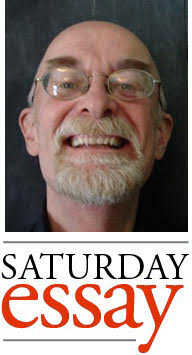Decline Porn, Duluth, and Love Amid the Ruins
 J.D. Vance, in a review of Janesville: An American Story in Commentary magazine:
J.D. Vance, in a review of Janesville: An American Story in Commentary magazine:
Having grown up in a blue-collar family that has largely abandoned the Democratic Party in droves, I have an unusually high tolerance for the many profiles of Trump voters in struggling industrial towns. Lately, however, even I have grown weary of what Noah Rothman calls “decline porn.” There are only so many words in the English language, and nearly all of them seem to have been used at least three times to help the denizens of Williamsburg and Dupont understand red-state voters and dying factory towns. Enough already.
Vance penned the most orgiastic piece of decline porn in recent memory, Hillbilly Elegy — apologies for my juvenile enjoyment of this metaphor — but there has been no shortage of titles in this genre, and a survey of my past reading list will find me devouring much of it, from Robert Putnam’s Our Kids to Yuval Levin’s The Fractured Republic, from George Packer’s The Unwinding to Charles Murray’s Coming Apart to Brian Alexander’s Glass House. It need not even be American; I could carry on with examples for a while. Decline porn is a fertile ground in contemporary non-fiction, and its best works tell haunting tales of realities that anyone vaguely involved in the shaping of political or economic trends must wrestle with. They also tap into a lament for things lost that speaks to a certain part of the human psyche and permeates my own writing at times. Someone who knows me well can probably psychoanalyze this wistfulness easily enough, but I come back to it for reasons that are philosophical as well as personal, and I could devote a lot of words to defending it in those terms. Meditations on loss go back to Eden and the early creation myths, as Paz so masterfully explains in the last chapter of The Labyrinth of Solitude. It’s a near universal human trait.
















